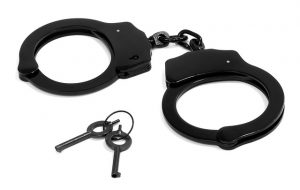There are different types of court-ordered diversion programs. Sometimes these are in an inpatient or residential setting and other times in outpatient settings or drug courts. Probation or parole officers are often included in the court-ordered rehab process. Those going through this must remember to check in with their officers on scheduled dates and times. They also may be subject to undergoing drug screens with both their parole officer and the rehab or alternative rehab setting they have been ordered to participate in. Some of these options will include peer support or trained mental health professionals who can work with you through detoxification and via various therapy forms including cognitive behavioral therapy and mindfulness therapy.
Drug Court: A Step Down from Jail
Drug court is a popular option for those appointed to court-ordered treatment. As of June 2015, 3000 drug courts existed in the United States. They each have different target populations, plans, strategies, and case management resources. Even so, they tend to all model their programs off an inclusive set-up. This model includes:
- Criminal screenings to calculate the individual’s risks, requirements, and responsivity.
- Legal communications.
- Watching for any drug use through means like drug testing and supervision.
- Progressed sanctions and encouragements.
- And treatment and rehabilitation services.
For those who are not considered to be violent offenders, drug court is a much more viable option for society due to the costs of incarcerating an individual. These programs encourage a form of educational treatment instead of simply locking a person up. Along with an emphasis on recovery, drug courts attempt to diminish the chance of any future legal ramifications from substance use or drinking. Individuals involved in these programs are obligated to abstain from all substance engagement, to hold themselves responsible for any actions they engage in, and to complete all legal consequences regarding the crimes they have committed. These programs are typically run by a multidisciplinary lineup. This team tends to include judges, prosecutors, and defense attorneys. Drug courts also tend to be managed by community corrections workers, case managers, social workers, and other trained service workers.
What If I Don’t Follow Court Recommendations?
 First off, it is important to realize that if you stop using drugs and alcohol you have less of a chance of having to appear for a trial or another trial. Through releases of information with the courts and your parole officer, trained professionals can relay information regarding clean drug screens and breathalyzers to the courts as well as their impression of your motivation to continue to stay sober.
First off, it is important to realize that if you stop using drugs and alcohol you have less of a chance of having to appear for a trial or another trial. Through releases of information with the courts and your parole officer, trained professionals can relay information regarding clean drug screens and breathalyzers to the courts as well as their impression of your motivation to continue to stay sober.
If you do not complete court-ordered recommendations, which typically is not just simply showing up and staying sober, but actually participating as well, you may end up with enhanced sentencing. This may mean you have a more severe consequence on your substance use-related crime. It could also be that the time with the punishment will be drawn out. Ultimately, this is up to the court to decide on repercussions.
Time for Help?
Discovery Place of Burns, Tennessee has you covered. Our alternative rehabilitation treatment offers support from trained professionals and volunteers who have ample recovery time under their belts. The impact that our 30-day recovery and long term residential programs have on people’s lives is real. We have over 127 Facebook reviews proving this. Call us today at 1-800-725-0922.


